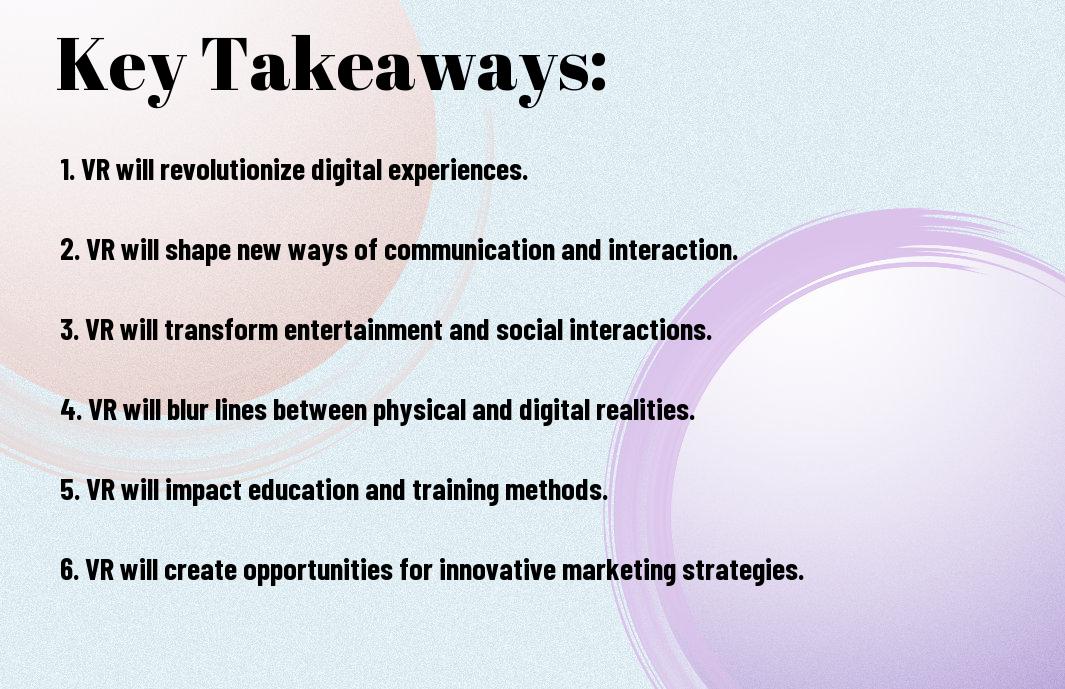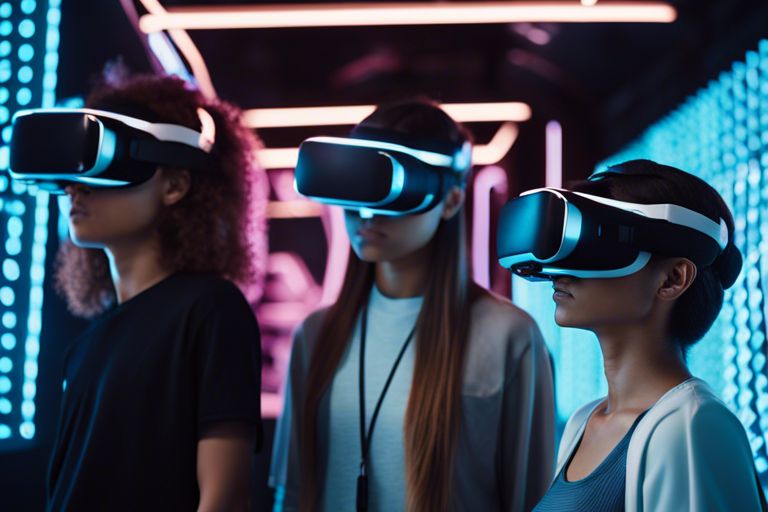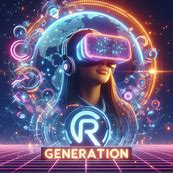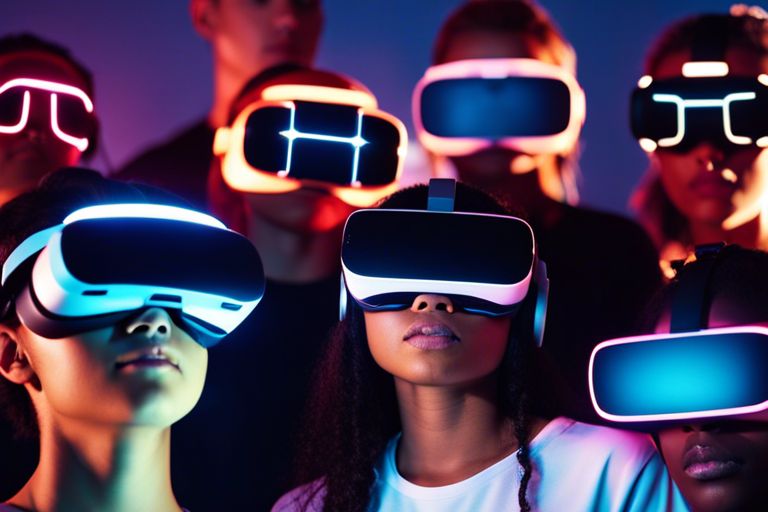There’s no denying that Virtual Reality (VR) technology has the potential to revolutionize the way we interact with the digital world. As we look ahead to 2025 and beyond, it is crucial to examine the impact that Generation VR will have on shaping the digital landscape. From immersive gaming experiences to virtual social interactions, the possibilities are endless. However, along with the exciting advancements, there are also concerns about privacy, addiction, and societal implications that come with this transformative technology. Let’s explore how Generation VR is set to redefine our digital future.

The Psychology of Generation VR
Clearly, the introduction of Virtual Reality (VR) technology has not only transformed the way we interact with digital content but has also raised intriguing questions about the psychological impact on Generation VR. Understanding how this generation perceives and experiences the virtual world is crucial in predicting how they will redefine the digital landscape of 2025 and beyond.
Redefining Experience and Perception
Redefining traditional concepts of experience and perception, Generation VR is immersed in a world where boundaries between reality and virtuality blur. The sensory-rich environment of VR offers users a unique opportunity to engage with content in ways never before imagined. By allowing individuals to step into alternate realities, VR has the power to shape how this generation understands and interprets the world around them.
As Generation VR grows up in an era where virtual experiences are seamlessly integrated into daily life, their perception of reality is likely to be more fluid and dynamic. This shift in perspective has far-reaching implications for how they interact with technology, consume media, and form connections with others in a digital world.
Impact on Learning and Cognitive Development
Psychology studies have shown that VR can have a profound impact on learning and cognitive development. The immersive nature of VR experiences has been linked to improved memory retention, increased engagement, and enhanced problem-solving skills. Generation VR has the opportunity to learn in environments that mimic real-world scenarios, providing hands-on experience and practical knowledge that is invaluable in today’s fast-paced world.
Development in VR technology also presents challenges in ensuring that users, especially younger generations, can distinguish between virtual and real experiences. As VR becomes more prevalent in educational settings, it will be crucial to establish guidelines and safeguards to protect the psychological well-being of young users and promote responsible usage.
Economic Implications of a VR-Driven World
Obviously, the rise of Virtual Reality (VR) technology is set to reshape the economic landscape in profound ways. The fusion of physical and digital worlds is creating new opportunities and challenges that businesses and individuals need to adapt to in order to thrive in this evolving environment.
Shifts in Consumer Behavior
VR-driven experiences are revolutionizing the way consumers interact with products and services. From virtual shopping and immersive marketing campaigns to virtual travel experiences, the possibilities are endless. Consumers now expect more personalized and engaging content, leading to a shift from passive consumption to active participation.
Moreover, the convenience and accessibility of VR technology are blurring the lines between online and offline experiences. This convergence is prompting businesses to rethink their strategies and provide seamless omnichannel experiences that cater to the evolving preferences of customers in this digital age.
New Business Models and Job Landscapes
Implications of VR technology extend beyond consumer behavior, influencing the emergence of novel business models and job landscapes. Virtual collaboration tools are enabling remote work opportunities, reducing the need for physical office spaces. At the same time, the demand for VR content creators, developers, and experience designers is skyrocketing, creating a new frontier for job seekers in the digital economy.
For instance, the rise of virtual events and conferences is reshaping the events industry, offering cost-effective and scalable solutions for businesses and attendees. This shift not only reduces the carbon footprint associated with traditional events but also opens up new revenue streams and global opportunities for businesses embracing this innovative approach.

Social and Cultural Transformations
Virtual Communities and Identity
To immerse oneself in the world of virtual reality is to step into a realm where boundaries blur and possibilities expand. An individual can transcend physical limitations and craft a digital persona that reflects their innermost desires and aspirations. Virtual communities serve as a playground for the exploration of identity, where individuals can interact and connect with others based on shared interests rather than physical proximity.
As Generation VR comes of age, the notion of identity will undergo a profound shift. Virtual communities will challenge traditional notions of self-expression and social interaction, paving the way for a more inclusive and diverse digital landscape where individuals are free to redefine themselves without fear of judgment.
The New Face of Entertainment and Media
Face the future of entertainment and media as Gen VR takes center stage in 2025 and beyond. An explosion of immersive experiences awaits consumers as virtual reality blurs the lines between fiction and reality. Virtual reality entertainment will not only revolutionize how we consume media but also how we perceive and interact with the world around us.
Transformations: The entertainment industry will undergo a seismic shift as virtual reality becomes the new normal. From interactive storytelling to virtual concerts, the possibilities are endless as content creators push the boundaries of creativity and innovation in the digital realm.
Technological Advancements and Concerns
Accelerating Innovation in VR Technology
Your journey into the immersive world of Virtual Reality (VR) is about to get even more exhilarating as technological advancements continue to revolutionize the digital landscape. An array of breakthroughs in hardware and software development is propelling VR technology into uncharted territory, enhancing user experiences like never before. From more realistic graphics to ultra-fast rendering speeds, the future of VR promises to transport users to realms that blur the lines between the physical and digital worlds.
As we approach 2025 and beyond, the race to push the boundaries of VR technology is intensifying, with industry giants investing heavily in research and development to create even more immersive and interactive experiences. Stay tuned as the convergence of AI, IoT, and VR technologies unlocks new possibilities and changes the way we perceive and interact with digital content.
Ethical and Privacy Considerations
Advancements in VR technology bring not just excitement but also ethical and privacy concerns that need to be addressed as we venture deeper into the VR realm. With the ability to collect and analyze user data in unprecedented ways, there are growing concerns about privacy breaches and data misuse. Additionally, as VR experiences become more immersive, there is a need to ensure that content creators adhere to ethical standards and avoid perpetuating harmful stereotypes or promoting inappropriate behaviors.
It is crucial for industry stakeholders and policymakers to collaborate in establishing clear guidelines and regulations to safeguard users’ privacy and promote ethical practices in VR development. By fostering a culture of responsibility and transparency, we can pave the way for a sustainable and trustworthy VR ecosystem that benefits society as a whole.
To wrap up
Now, as we look ahead to the digital landscape of 2025 and beyond, it is clear that Generation VR will play a pivotal role in redefining our online experiences. With their innovative use of virtual reality technology, these digital natives will reshape how we interact, communicate, and consume information in ways we have never seen before. By immersing themselves in virtual environments, Generation VR will push boundaries, break down limitations, and create new opportunities for collaboration and creativity. As the torchbearers of the digital future, they are poised to transform the way we engage with technology and each other, ushering in a new era of connectivity and exploration.





